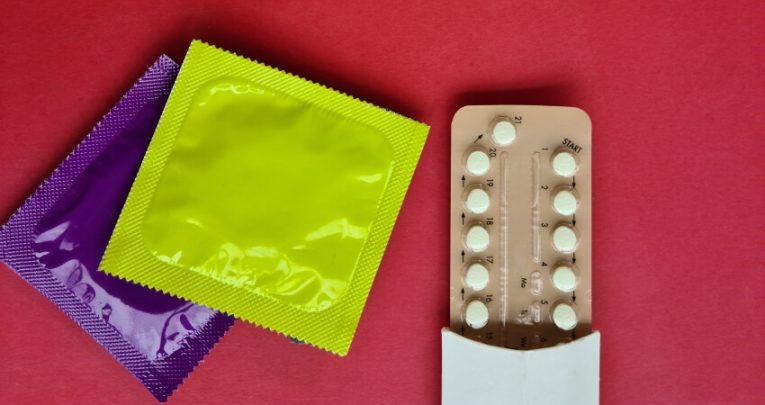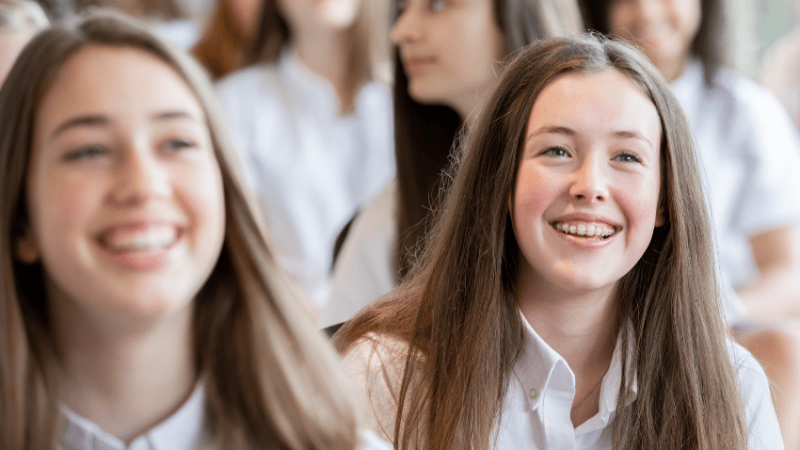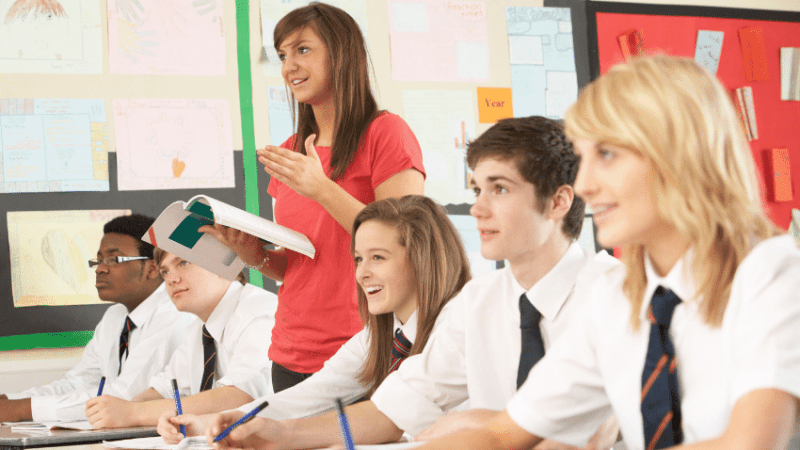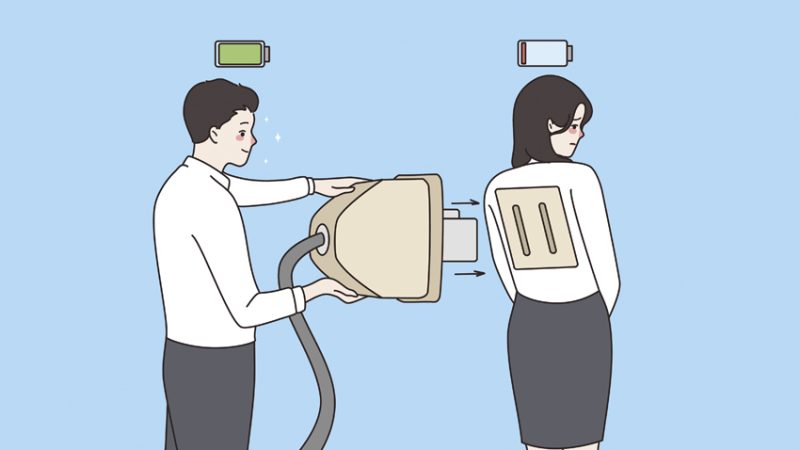RSE in schools – Pay attention to the ‘lessons’ your students are teaching each other

Milly Evans highlights the sex education lessons your students are already giving each other, and why teaching staff should be paying attention…

- by Milly Evans

I once overheard an 18-year-old classmate tell her friend, with utter conviction, “You don’t get a vagina until you turn five.”
I don’t know whether she thought you had to buy one at the corner shop, were given one in some kind of secret ‘vagina ceremony’, or that it just spontaneously appeared upon hitting that age, but she certainly believed what she was saying.
When it comes to sex education, misinformation can spread like wildfire. From myths around condoms, pulling out and pregnancy, to deep misunderstandings about our bodies, consent and what healthy relationships look like, as a sex educator I’m constantly debunking information young people have heard from their friends, from parents or via the internet.
That’s why it baffles me whenever I hear that common argument against sex education in schools – ‘They’re too young to be learning about this stuff!‘
It makes me wonder how much people really know about what teens and young people talk about, and the information they have access to. Being a young adult myself, I know all too well how we’ll often learn our sex ed from peers, long before we get it from parents, teachers or other reliable sources.
Life lessons
I was one of very few at my school who received quality sex education, thanks to my parents teaching me at home. With no school-provided sex ed to speak of at the time, my classmates were generally left to their own devices.
Though the unofficial sex education my friends and I shared left much to be desired, chatting with them about breakups, our bodies, street harassment, gender and masturbation undeniably shaped our future experiences – sometimes in really positive ways.
Conversations that parents may be nervous about their child having in sex ed lessons are likely already taking place within their friendship groups – and that’s not necessarily a bad thing. But they still need access to somewhere, or someone reliable from whom they can get accurate answers too.
Taking on misinformation
It can’t be denied that young people are at risk of picking up some dangerous ideas about sex from their peers or online – some obvious, and others harder to spot. I can remember another overheard conversation at school, where a group of friends enthusiastically agreed that it was okay to get angry and upset if a partner said no to sex, because it was a surefire way to ‘Get them to change their mind.‘
Left unquestioned, throwaway comments and ‘jokes’ around consent, relationship abuse, stereotypes and power can sometimes end up being even more harmful than deliberate misinformation, later translating into hateful language, bullying and violence.
We often assume that the people around us will instinctively learn how to become respectful and kind over time – but without appropriate guidance and intervention, it’s all too easy for hateful and harmful ideas passed on from friends and social media to take root and change people’s behaviour for the worse.
Undoing the damage caused by misleading information around sex and relationships presents a much bigger challenge than simply providing young people with timely, accurate and supportive sex education to start with – ideally accompanied by reliable resources, and the teaching of life skills that can help with identifying and critiquing misinformation.
The takeaway
Young people now have more access to the adult world than ever before, so be aware that many conversations around sex and relationships will be starting earlier than you might expect.
I’d recommend doing some learning yourself – not just around sex ed practices, but the media young people are consuming, and the kind of areas sex educators like myself are being asked to cover on platforms like TikTok.
Above all, though, don’t just dismiss the conversations young people are having around sex and relationships as ‘gossip’. Instead, try to listen in and be responsive to what’s happening in students’ lives.
And where possible, let your students have a say in their sex education – because who knows better than a teenager what teenagers want to actually want to know?
Milly Evans is a sex educator, journalist and author; her non-fiction book for teens, HONEST: Everything They Don’t Tell You About Sex, Relationships and Bodies, is available now (Hot Key Books, £7.99)










